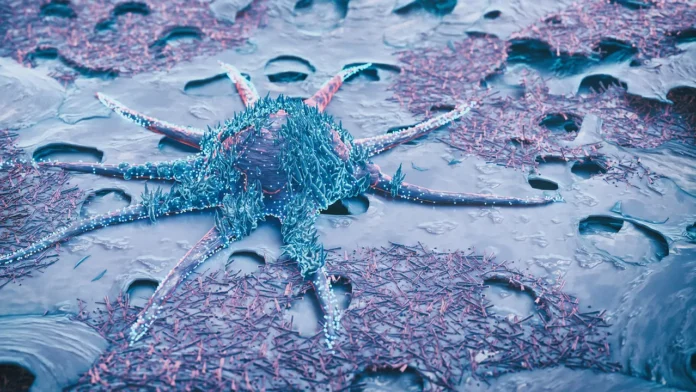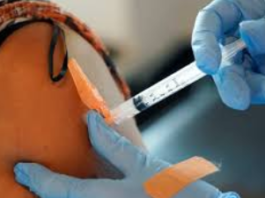Multiple mutations in cancer cells change the way cell competition works and utilise it to their advantage.
Original story from Tokyo University of Science

Living cells strive to adapt to their surroundings and compete with one another. Cells that are not able to do this are ultimately removed. The surrounding normal epithelial cells exploit this cellular competition to recognise and kill mutant cancer cells, which makes it vital. According to studies, when “Ras” protein activating mutations are produced in mammalian epithelial cells, they are driven towards the lumen where they are expelled by competition and disposed of with other body waste.
Also Read :
How eating foods with a lot of processing increases the risk of oral cancer
It has been shown that this method eliminates epithelial cells with Ras mutations from the small intestine, stomach, pancreas, and lungs, among other organs. This shows that cell competition is an inbuilt defence mechanism that epithelial cells use to restrict the onset of cancer by preventing the accumulation of accidentally created malignant cells.
When healthy cells develop into malignant ones, mutations in many different genes often occur one after the other. How this mechanism affects cell competition is unknown, however.
For example, human colorectal cancer arises from a malfunctioning of the adenomatous polyposis coli (APC) gene that initiates “Wnt signalling,” which is then followed by the activation of Ras signalling.
A group of Japanese scientists, led by Associate Professor Shunsuke Kon of the Institute of Biomedical Research and Innovation, Tokyo University of Science (TUS), conducted a study recently that looked at the impact of stepwise gene mutation accumulation on cell competition as well as the function of cell competition in the actual process of cancer formation.
As the primary author of their work, Mr. Kazuki Nakai, a third-year PhD candidate at the Graduate School of Life Sciences of TUS, published it in Nature Communications on November 3, 2023.
The study’s findings demonstrated that cell competition function changed when Wnt signals were turned on in epithelial cells. Activated Ras mutant epithelial cells diffusely infused into the tissue to form extremely invasive malignant tumours, rather from being removed into the lumen as they typically would.
“We discovered that the function of cell competition is altered in epithelial tissues where Wnt and Ras signals, which commonly occur in human colorectal cancer,” says senior author Dr. Kon. It was discovered that there is a promotion of the generation of cancer cells that permeate the interstitium diffusely.”
Additionally, the study team discovered that aberrant cell competition is one of the reasons behind the formation of diffusely invasive cancer cells in early colorectal cancer, which is attributed to an elevated expression of matrix metalloproteinase 21 (MMP21).
Consequently, it was shown that the innate immune system’s stimulation of nuclear factor kappa B (NF-κB) signals was the direct cause of this. Ras mutant epithelial cells were once again eliminated from the luminal layer when NF-κB signalling was blocked. Such questions as “How do transformed cells sense the cellular content that leads to the NF-B-MMP21 pathway?” and “How do surrounding cells recognise transformed cells and prepare them for cellular extrusion?” are raised by these fascinating discoveries. It’s quite likely that these issues will need to be resolved in the future.
The findings of this study demonstrate how cancer cells with a history of consecutive genetic alterations may modify the way that cell competition functions and use it to their advantage to become more invasive.
Rather of being removed to the lumen, they penetrate the tissue and generate cancer cells of a higher grade. Although the study’s research team observed that the cancer histology of the mice utilised in the study mirrored human diffuse-type cancer, further investigation is required to ascertain if additional malignancies might benefit from the NF-κB-MMP21 pathway. For example, it might be fascinating to look into scirrhous stomach cancer, which is a common diffuse-type malignancy.
All things considered, our results show that Wnt activation causes a disruption in cell competition and gives altered cells invasive characteristics that allow them to bypass primary epithelial sites. Therapeutic applications may arise from an understanding of how the molecular landscape is altered to alter the destiny of cancer cells with high mutational loads. Researchers working towards shared objectives in Wnt signalling or cancer research, like those at Cancer Research UK and the Koch Institute for Integrative Cancer Research at MIT, may find this interesting.
“This work further raises the possibility that cell competition limits the sequence in which mutations arise during tumour development, underscoring a connection between cell competition and carcinogenesis,” says Dr. Kon in closing. From the perspective of cell competition and invasion, we think that this will open the door for the creation of novel cancer therapies for the good of our society.”
Reference: Nakai K, Lin H, Yamano S, et al. Wnt activation disturbs cell competition and causes diffuse invasion of transformed cells through NF-κB-MMP21 pathway. Nat Commun. 2023;14(1):7048. doi: 10.1038/s41467-023-42774-6
Cancer Cells
This article has been republished from the following materials. Note: material may have been edited for length and content. For further information, please contact the cited source.



